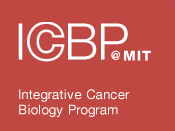| Title | Quantitative analysis of EGFRvIII cellular signaling networks reveals a combinatorial therapeutic strategy for glioblastoma. |
| Publication Type | Journal Article |
| Year of Publication | 2007 |
| Authors | Huang, PH, Mukasa, A, Bonavia, R, Flynn, RA, Brewer, ZE, Cavenee, WK, Furnari, FB, White, FM |
| Journal | Proc Natl Acad Sci U S A |
| Volume | 104 |
| Issue | 31 |
| Pagination | 12867-72 |
| Date Published | 2007 Jul 31 |
| ISSN | 0027-8424 |
| Keywords | Animals, Cell Line, Tumor, Drug Resistance, Neoplasm, Glioblastoma, Humans, Mice, Mice, Nude, Phosphorylation, Protein Kinase Inhibitors, Protein Kinases, Receptor, Epidermal Growth Factor, Signal Transduction, Xenograft Model Antitumor Assays |
| Abstract | Glioblastoma multiforme (GBM) is the most aggressive brain tumor in adults and remains incurable despite multimodal intensive treatment regimens. EGFRvIII is a truncated extracellular mutant of the EGF receptor (EGFR) commonly found in GBMs that confers enhanced tumorigenic behavior. To gain a molecular understanding of the mechanisms by which EGFRvIII acts, we have performed a large-scale analysis of EGFRvIII-activated phosphotyrosine-mediated signaling pathways and thereby have identified and quantified 99 phosphorylation sites on 69 proteins. Distinct signaling responses were observed as a function of titrated EGFRvIII receptor levels with the phosphatidylinositol 3-kinase pathway being dominant over the MAPK and STAT3 pathways at a high level of EGFRvIII expression. Within this data set, the activating phosphorylation site on the c-Met receptor was found to be highly responsive to EGFRvIII levels, indicating cross-activation of the c-Met receptor tyrosine kinase by EGFRvIII. To determine the significance of this finding, we devised a combined treatment regimen that used a c-Met kinase inhibitor and either an EGFR kinase inhibitor or cisplatin. This regimen resulted in enhanced cytotoxicity of EGFRvIII-expressing cells compared with treatment with either compound alone. These results suggest that the clinical use of c-Met kinase inhibitors in combination with either EGFR inhibitors or standard chemotherapeutics might represent a previously undescribed therapeutic approach to overcome the observed chemoresistance in patients with GBMs expressing EGFRvIII. |
| DOI | 10.1073/pnas.0705158104 |
| Alternate Journal | Proc. Natl. Acad. Sci. U.S.A. |
| PubMed ID | 17646646 |
| PubMed Central ID | PMC1937558 |
| Grant List | P01 CA 95616 / CA / NCI NIH HHS / United States P60 GM 68762 / GM / NIGMS NIH HHS / United States U54 CA 112967 / CA / NCI NIH HHS / United States |
